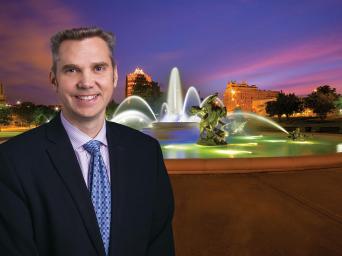Warning message
Now scheduling physician-referred CardioScans. We are not accepting self-referrals at this time.CardioScan (Coronary Artery Calcium Scan)
CardioScan is a vital tool in the fight against heart disease.
A CardioScan can help identify coronary artery disease before symptoms occur. This early detection allows you and your physician to initiate appropriate therapies—such as lifestyle changes and treatment of risk factors—to help slow down the progression of coronary artery disease. A CardioScan takes less than 10 minutes.
What is a CardioScan?
A CardioScan is a special type of CT scan that detects calcified plaque in the coronary arteries. This calcified plaque indicates the presence of coronary artery disease, commonly referred to as "hardening of the arteries." As more plaque builds up, the risk of a heart attack increases. Identifying plaque build-up early allows you and your doctor to treat modifiable risk factors and determine whether any additional testing is required to help prevent a heart attack.
Do I need a physician's order?
Yes, you will need a referral from your primary physician or your cardiologist.
Do I need a CardioScan?
You should consider having a CardioScan if you meet one or more of the following criteria:
- Age 60 or older
- Mother or sister diagnosed with heart disease at age 65 or younger
- Father or brother diagnosed with heart disease at age 55 or younger
- Have a history of:
- Diabetes
- Hypertension (high blood pressure)
- Hyperlipidemia (high cholesterol)
- Stroke
- Peripheral vascular disease
- Tobacco use, either current or former
How does it work?
The exam takes about ten minutes and doesn’t involve needles, prep, injections, or an IV. You will have three ECG leads placed on your chest, and you will lie back with your arms above your head. When the table is in the proper scanning position, the machine will instruct you on how and when to breathe. You will need to hold your breath for 15 to 20 seconds two or three times during the scan. The scanner is not confining, and most patients don’t feel claustrophobic.
Following your scan, you will be contacted by a patient educator who will explain the CardioScan results, counsel you on risk-factor modification, and answer any questions you may have.
How long does a CardioScan take?
While the scan takes about 10 minutes, we ask that you set aside 30 to 60 minutes from check-in to check-out to allow time for us to prepare you for the procedure and interpret your results.
Will I be exposed to radiation during the CardioScan?
There’s a small amount of radiation exposure involved with a CardioScan—about 1 mSv—which is approximately a third of the amount you’re exposed to each year from living on Earth.
What if calcified plaque is identified?
A Saint Luke’s cardiologist will interpret your CardioScan. The results will be discussed with you and recommendations will be given about beneficial lifestyle changes, treatment options, or if any additional testing is needed.
Will you share my CardioScan results with my primary physician?
We will send your results to the doctor who referred you for the test.
How can I get a CardioScan?
Ask your primary provider or cardiologist for a referral. If you have questions, call Saint Luke’s at 816-932-4600, Hedrick Medical Center at 660-214-8320, or Anderson County Hospital at 785-204-7175.
When your CardioScan is scheduled, complete and sign our CardioScan Patient Information and Authorization form (PDF).
